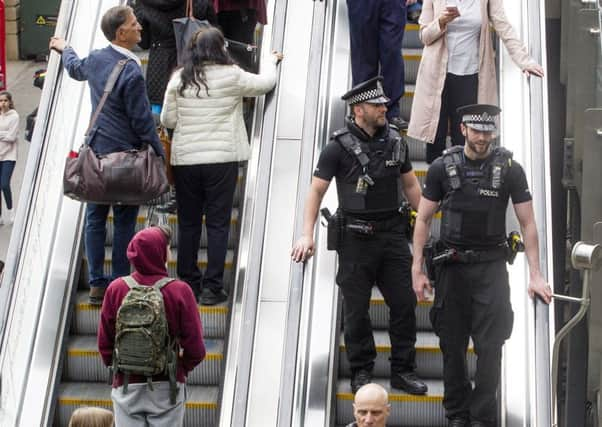Leader comment: No answer to threat of lone suicide bomber


We have suffered brutal killings in the UK since that carnage 12 years ago, namely the murder of young soldier Lee Rigby in Woolwich, and then just two months ago the killing of four people at Westminster Bridge and a police officer at the Palace of Westminster.
But as bad as those attacks were, we had so far avoided what was always seen as the worst-case scenario – a lone suicide bomber, bent on destroying lives, walking into a crowded area and detonating a device that would cause multiple fatalities. Worse still, the soft target was a place where the attacker knew that children would be killed. It was every parent’s worst nightmare, and for many parents today, that nightmare will now dominate the rest of their lives.
Advertisement
Hide AdAdvertisement
Hide AdWe have seen variations on this kind of approach elsewhere in Europe: 89 people were killed by gunmen at the Bataclan theatre in Paris, and a cargo truck was driven into crowds celebrating Bastille Day in Nice, killing 86 people.
With attacks on this scale moving ever-closer to Britain, it was inevitable that terror was on its way here, and that reality has been reflected in the UK threat level having a rating of “severe” for the past three years, indicating an attack is considered “highly likely”.
And while we have been going about our lives, with little disruption, there has been an average of one terror-related arrest per day in recent months. Who can say what would have happened if this action had not been taken?
Our security forces may well have stopped many other intended atrocities from taking place during recent years, but it is impossible to prevent the lone attacker who might not be on the radar. At this stage we know that Salman Abedi was known to the authorities, but he was not regarded as high risk, and unless there was available evidence that he had become active, his intentions were very difficult to detect. We cannot restrict the movements of someone who might have done no more than aroused suspicion, and nor can we assign 24-hour observation to every person whose name emerges as a potential, but to date dormant, threat.
Attempts will now be made to establish if the Manchester bomber was operating independently, or was supported by others who helped him to plan his attack and make a lethal explosive device. This process is, at present, the priority, because the emergence of Abedi could help to identify and constrain other threats at large in the UK.
Experts will also examine what is left of the device used in Manchester, the deployment of which is an extremely concerning development following recent belief that an attack in the UK was more likely to be with a knife or a vehicle. But even if these processes yield vital clues and remove currently unknown threats, we will remain under “severe” threat of attack.
And sadly, following these leads is about as much as can be done right now. Donald Trump wishes to “obliterate” people that the US president’s own security forces cannot identify or locate. Those at the other end of the spectrum, who believe that attempts should be made to talk to the terrorists, also face difficulties with the practicalities of such a strategy. Until such time as we know that Abedi was working with others, who are these people we should be entering dialogue with? If we had the answer to this threat, we would not be facing days like these.
It is no consolation right now, but attacks like the one suffered this week remain rare, considering how many soft targets there are in everyday life in Britain. We have our security services to thank for that, but for the moment, damage limitation is more realistic than prevention.